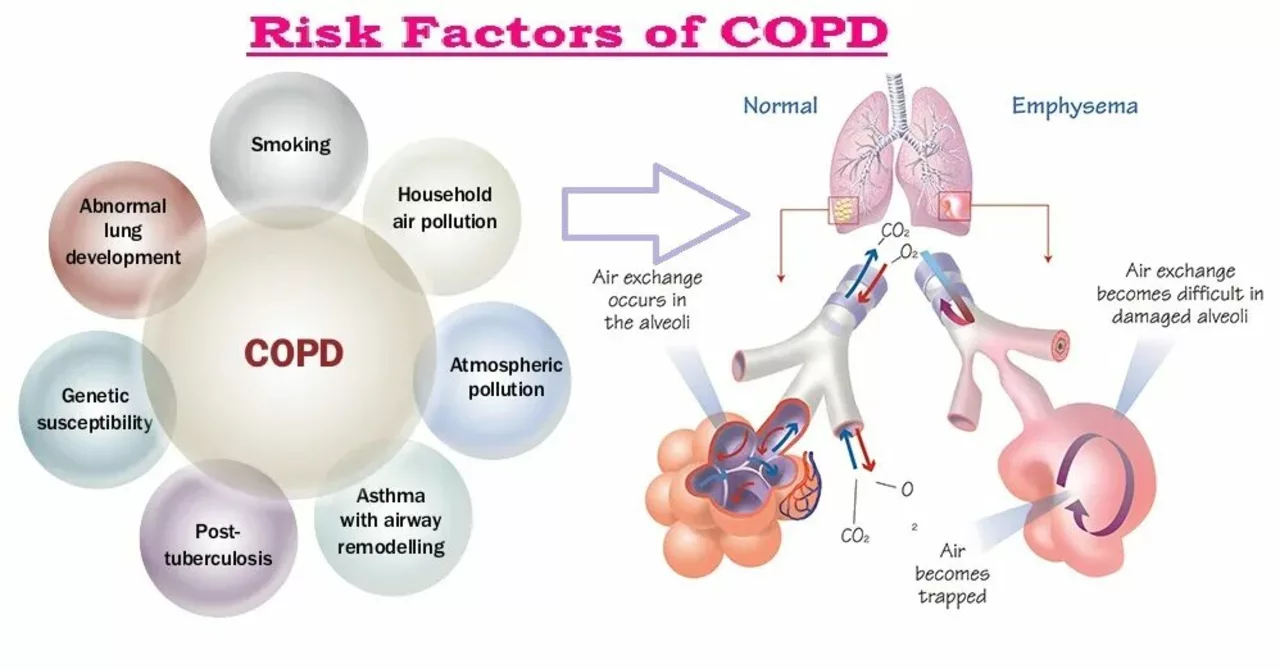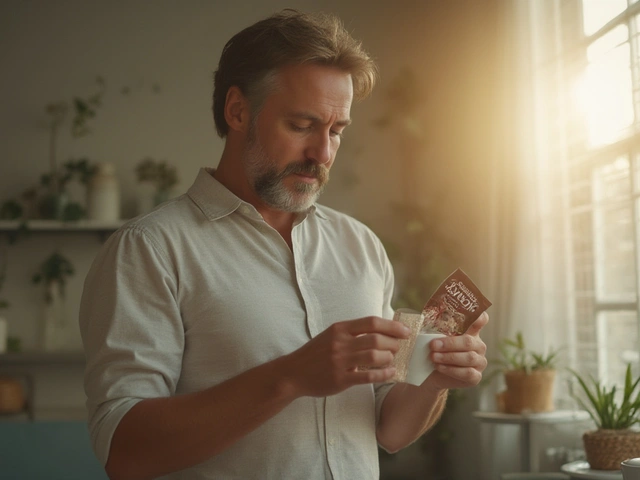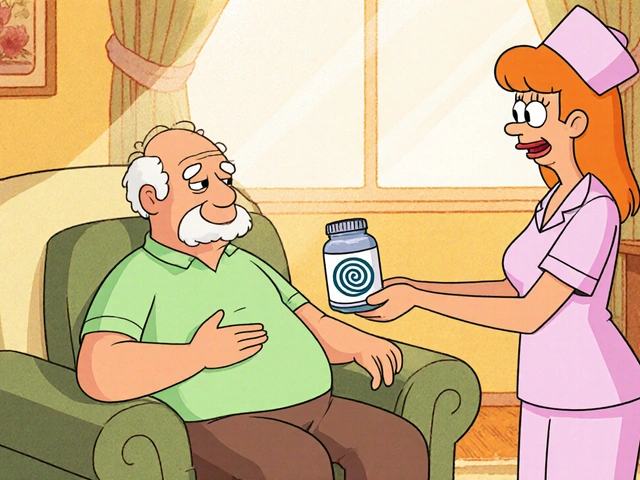
Preparing for Your Trip with COPD
As someone living with Chronic Obstructive Pulmonary Disease (COPD), planning a trip might seem daunting. However, with the right preparation, you can still enjoy traveling and create memorable experiences. In this section, I'll share some essential tips to help you prepare for your trip and make the most of your time away.
First and foremost, consult with your doctor about your travel plans. They can assess your current health condition and provide recommendations on managing your COPD while traveling. In some cases, they may even suggest adjusting your medication to improve your comfort during the trip.
Additionally, make sure you have enough medication to last the entire trip, plus extra in case of delays or emergencies. Don't forget to keep all medications in their original packaging and carry a copy of your prescription as well.
Choosing the Right Destination and Accommodations
When living with COPD, it's important to choose a destination that won't exacerbate your symptoms. Avoid places with high altitudes, extreme temperatures, or heavy air pollution, as these factors can negatively impact your breathing. Instead, opt for locations with a mild climate and good air quality.
When booking accommodations, make sure to choose a hotel or rental that is smoke-free and has air conditioning. You may also want to consider a place with an elevator or ground-floor rooms to minimize the need for climbing stairs. Don't hesitate to contact the hotel or rental host to inquire about any specific needs or concerns you may have.
Packing Essentials for Traveling with COPD
Packing for a trip can be overwhelming, but it's crucial to ensure you have everything you need to manage your COPD while away from home. Here are some items I recommend including in your packing list:
- A portable nebulizer or inhaler, along with extra batteries or chargers
- A pulse oximeter to monitor your oxygen levels
- A spacer device for your inhaler, if you use one
- A travel pillow and blanket for added comfort during long journeys
- A written action plan that outlines your COPD management, including your medications and steps to take in case of an emergency
- A list of emergency contacts and your doctor's contact information
- A face mask to protect yourself from air pollution, allergens, or respiratory infections
Managing Your COPD During Travel
While on your trip, it's essential to continue managing your COPD effectively to ensure you can enjoy your time away. Make sure you maintain your regular medication schedule and follow any additional recommendations from your doctor. If you're traveling across time zones, consult with your healthcare provider on how to adjust your medication schedule accordingly.
Stay mindful of your symptoms and make adjustments to your activities as needed. If you find yourself feeling short of breath or fatigued, take breaks and give yourself time to rest. Remember that it's okay to prioritize your health and well-being over trying to do everything on your itinerary.
Traveling with Oxygen
If you require supplemental oxygen, traveling can be a bit more challenging, but it's still possible. Make sure to plan well in advance and coordinate with your oxygen supplier, airline, and accommodations to ensure you have the necessary equipment and support during your trip. Here are some tips for traveling with oxygen:
- Obtain a prescription for your oxygen needs, including the flow rate and duration of use
- Contact your airline well in advance to inform them of your oxygen requirements and complete any necessary paperwork
- Make arrangements for portable oxygen concentrators (POCs) or oxygen tanks to be delivered to your destination if you're unable to travel with your own
- Pack extra batteries and chargers for your POC, and ensure you have a power adapter if traveling internationally
- Carry a copy of your oxygen prescription and a letter from your doctor explaining your need for oxygen during the trip
Staying Healthy and Enjoying Your Trip
Finally, it's essential to prioritize your health and well-being during your trip. Make sure to maintain a healthy diet, stay hydrated, and get plenty of rest. Avoid exposure to smoke or air pollution, and practice good hygiene to reduce your risk of respiratory infections. If possible, incorporate gentle exercise like walking or stretching into your daily routine to help maintain your lung function.
Remember that it's okay to ask for help or make adjustments to your plans if needed. Don't hesitate to communicate your needs with your travel companions or the staff at your accommodations. By taking these precautions and managing your COPD effectively, you can enjoy a fulfilling and memorable travel experience.




Vivian Chan
May 6, 2023I'm not saying the government is hiding something, but why do they never mention that COPD meds are often laced with microchips to track patients? I had to fly last year and my inhaler started vibrating mid-flight. Coincidence? I think not.
Also, airlines require you to sign a waiver saying you won't die on the plane. That's not a safety protocol-that's a cover-up.
andrew garcia
May 7, 2023It is a profound and humbling experience to witness the resilience of those who navigate life with chronic illness. One must remember that the body, though limited, is not defeated. The wisdom in this post-its care, its clarity-is a quiet revolution in a world that often values speed over stillness.
Thank you for this. 🙏
ANTHONY MOORE
May 8, 2023This is actually super helpful. I’ve got a buddy with COPD and I never knew how much planning goes into just getting on a plane. The oxygen stuff alone? Mind blown.
Also, portable nebulizer + extra batteries? Yes. Always yes. I’m stealing this list for my next road trip with him.
Jason Kondrath
May 10, 2023Let’s be honest-this is basic. If you’re traveling with COPD and you didn’t already know to avoid high altitudes and pack extra meds, you shouldn’t be traveling at all. This reads like a 101 pamphlet from a clinic waiting room.
And why no mention of pulmonary rehab programs abroad? Or the fact that some countries have better air quality data? This is surface-level fluff.
Jose Lamont
May 12, 2023I’ve been living with mild COPD for over a decade and this post made me feel seen. The part about taking breaks? That’s the real secret. I used to push through everything-hikes, museums, walking tours-until I learned that rest isn’t failure. It’s strategy.
Also, the face mask tip? Genius. I wear mine even in quiet airports. Just a little extra buffer.
Ruth Gopen
May 12, 2023I cannot believe you didn’t mention the emotional toll of being treated like a liability while traveling! I was once denied boarding because my oxygen concentrator was ‘too bulky’-even though it was FAA-approved! I cried for three hours in that terminal. This isn’t just about meds and flights-it’s about dignity.
PLEASE include a section on how to advocate for yourself when airline staff don’t know the law!
Nick Bercel
May 12, 2023I’m just gonna say it: packing a travel pillow? Overkill. I use a hoodie. Works better, smells better, and doesn’t take up space. Also, pulse oximeter? Only if you’re paranoid. I just listen to my body. If I’m huffing, I sit. Done.
Alex Hughes
May 13, 2023The real issue here isn’t the logistics of travel with COPD it’s the societal assumption that chronic illness is something to be managed quietly and without disruption when in reality every breath taken on a plane or in a hotel room is an act of quiet rebellion against a world that doesn’t accommodate difference and the fact that we are expected to be invisible even when we are most visible in our vulnerability is the true burden not the oxygen tanks or the nebulizers or even the altitude it’s the loneliness of being told you’re too much and not enough all at once